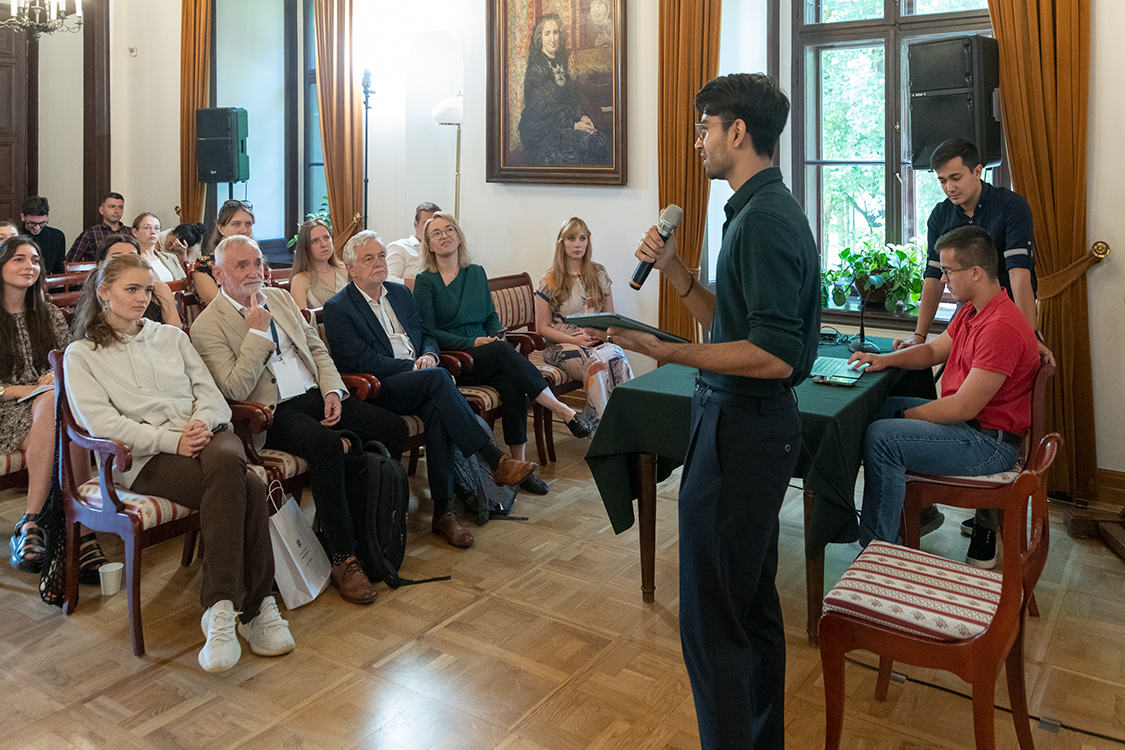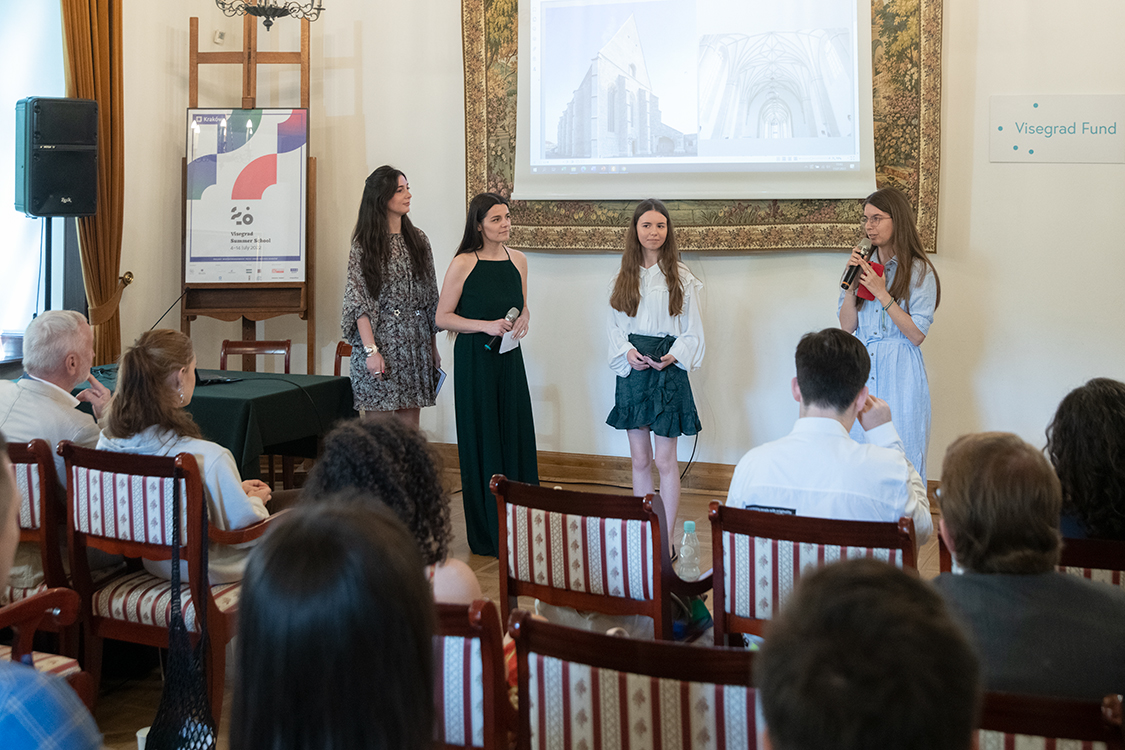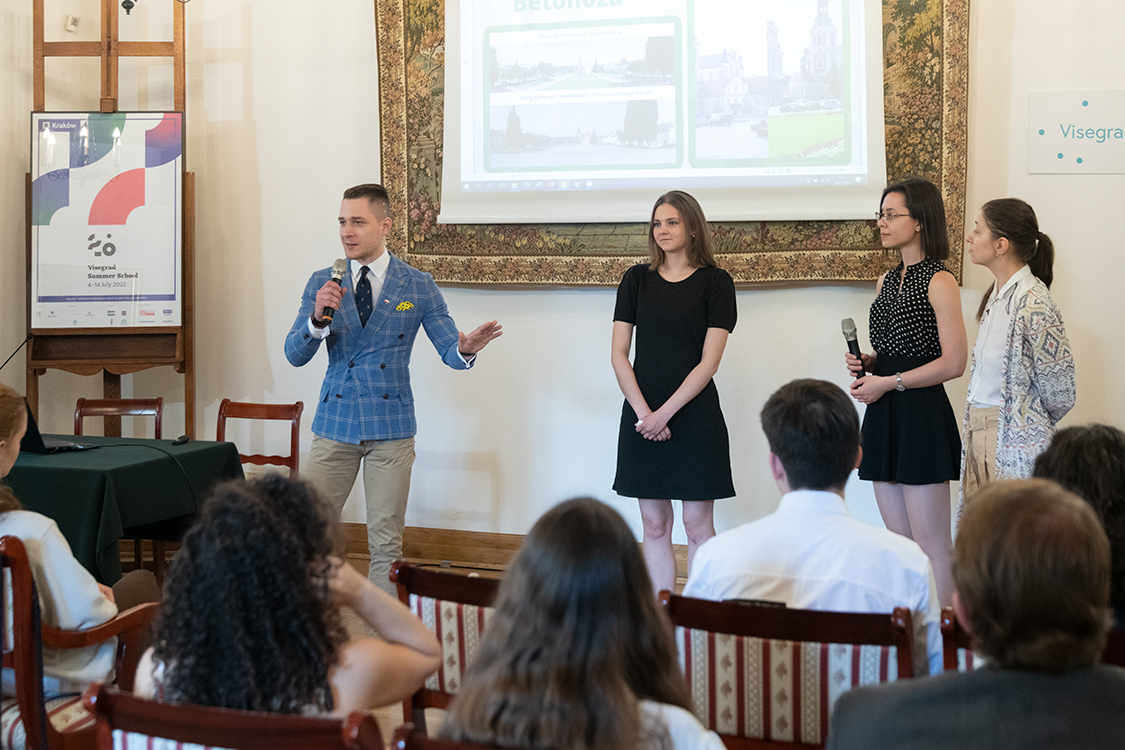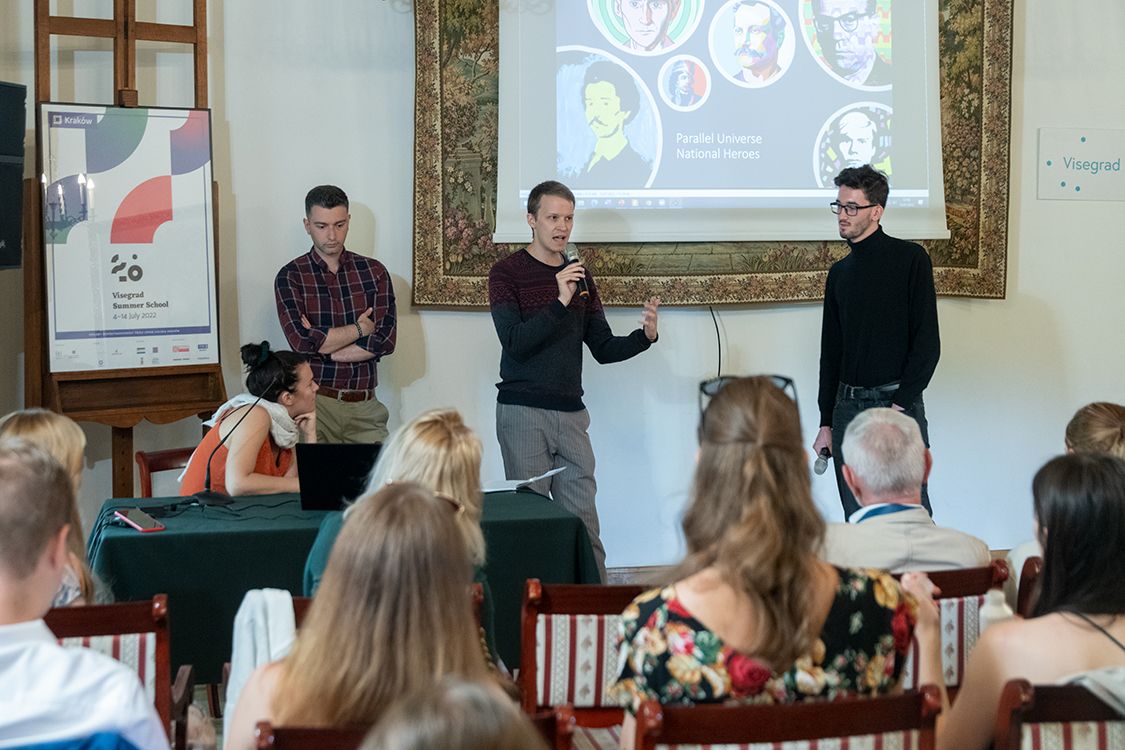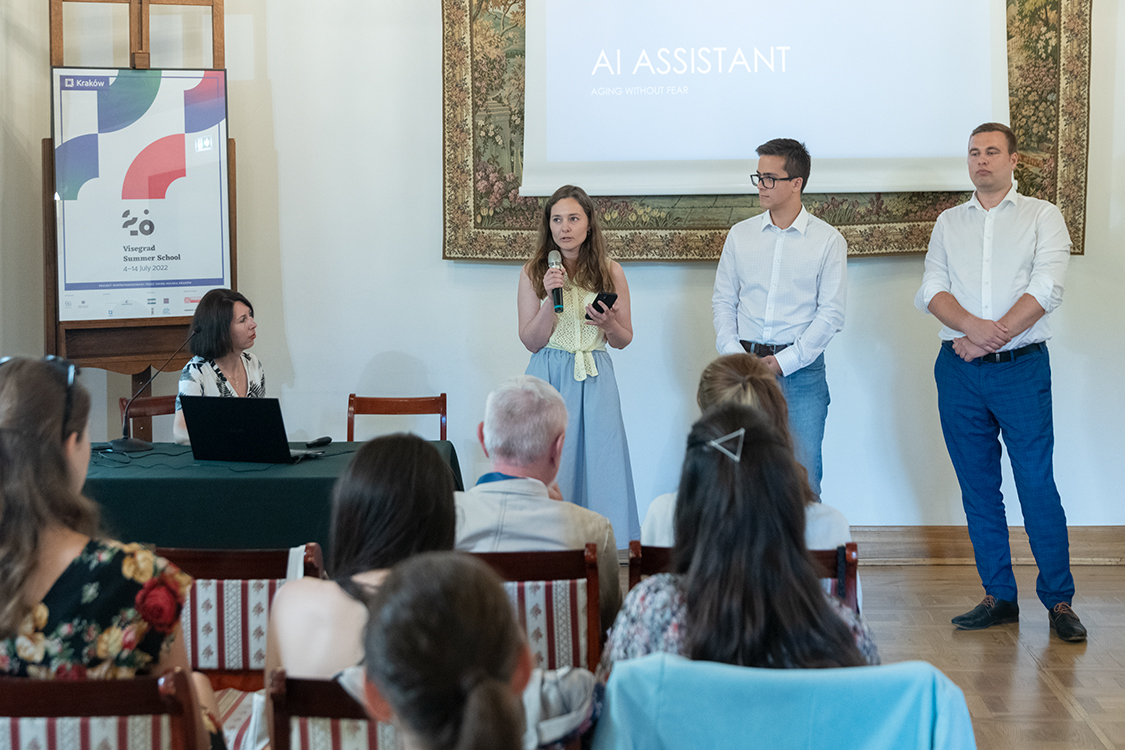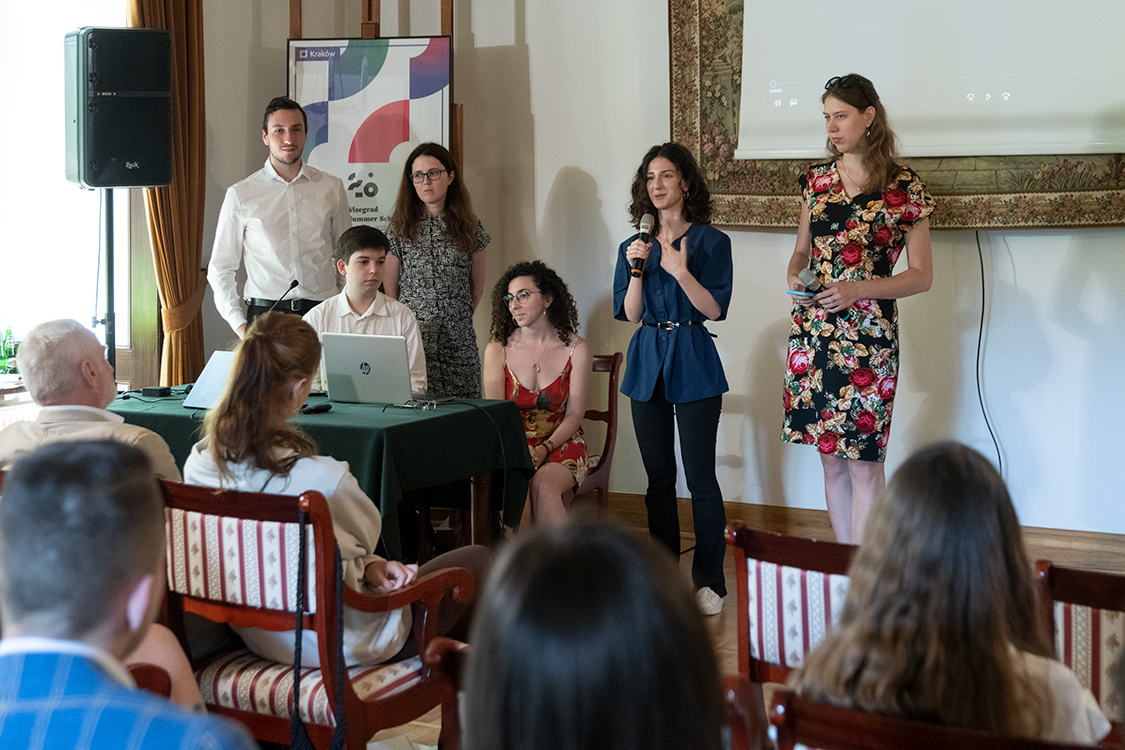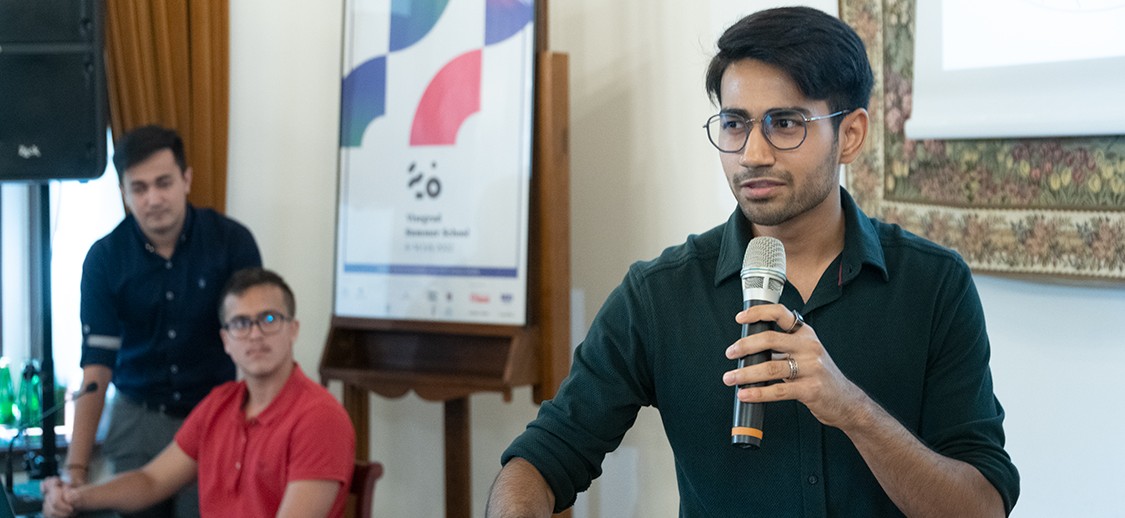
The groups working with AI-oriented ideas presented different projects that would improve people’s daily life. The first group opened the session with a project about the Museum of the Future and how augmented reality and portraits altered with deepfakes would contribute to participate in a more immersive experience. Another group, mentioned how the change of public spaces from greener areas to concrete squares have affected the quality of life, then, following a proposed 4-steps action plan, the usage of AR/energy sensors can aid a city to develop into a smart city. The last of the business-AI groups talked about how AI can help accompanying the elderly with solitude and mental health problems. They said that an AI assistant can remind users the schedule of their events, tasks, planning and with technology, since it would be working with a programmed algorithm that would know the needs of the user.
The other half of the groups aimed to discuss issues surrounding cultural heritage, specifically in their countries or regions. The first of them raised the concern when restauration can lead to destruction and loss of cultural heritage; three examples were proposed: the Reformed Church in Koloszovar, Rumania; Children’s Mall in Kiev; and the Bagrati Cathedral in Georgia, which was removed not so long ago from UNESCO’s World’s Heritage List. The causes explored were the pursue of revenue in these buildings, no proper urban planner, no inspection of regulations, etc.
The following group presented a project called “Parallel Universe”, with the objective to boost the potential of multiculturalism in Central Europe, by taking the national figures and cultural representatives of Visegrad countries and change their nationalities, as an exercise to rethink figures from Central Eastern Europe as leaders of other countries. The last group closed the presentations with a video about the visit to the German Concentration Camp - Auschwitz-Birkenau, where the interviewed participants expressed their opinions about how to make it more accessible to youngers and future generations, as well as their impressions and feelings towards the visit.
At the end of each group presentation there was an small discussion and questions about the presented topic.
